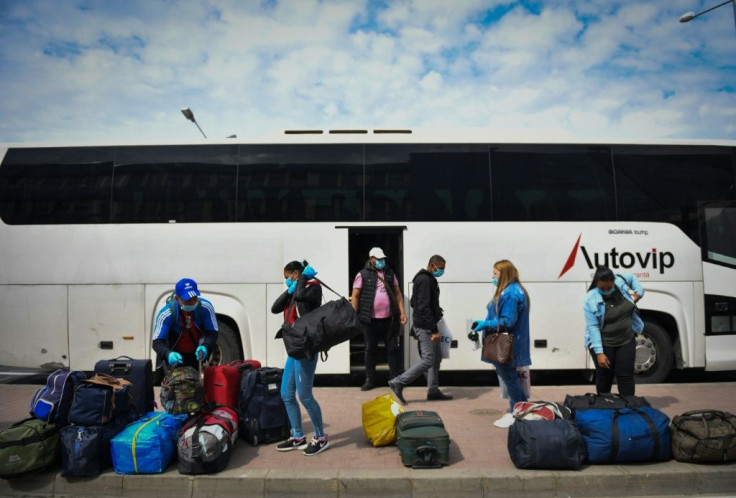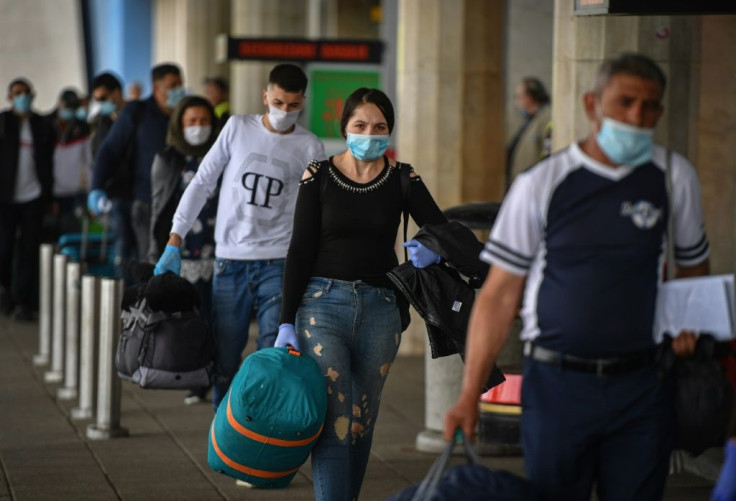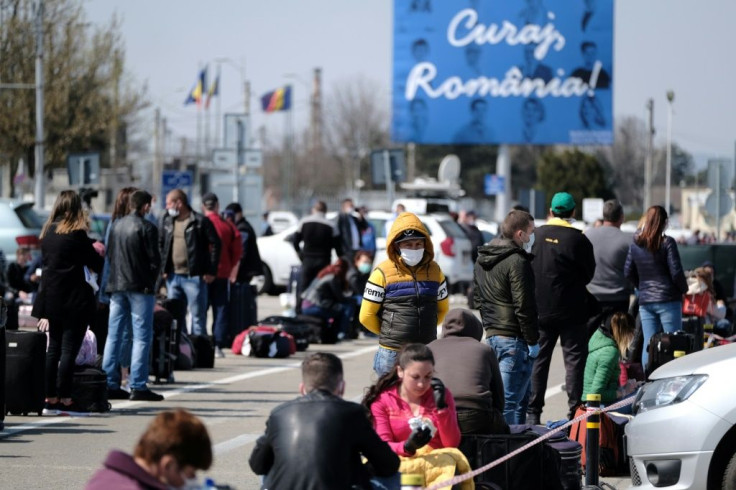Romania's Seasonal Workers Sidestep Lockdown Out Of Necessity
Romanian workers are in high demand as farms and home care firms throughout western Europe clamour for help from the east, even with borders closed because of the coronavirus pandemic.
"Seasonal workers are just a minority of Romanian immigrants, but in these past few weeks they became much more visible," sociologist Iulian Stanescu from the Institute for Quality of Life, told AFP.
To fight the virus's spread, Romania's minority liberal government toughened border controls and suspended flights to many European Union countries in mid-March.
But following pleas from its own population and pressure from EU neighbours eager for harvest helpers and caretakers, one of the bloc's poorest members decided to exempt seasonal workers from the travel ban.
Since early April, tens of thousands have taken charter flights -- organised by agents and approved by the government -- to Germany and the United Kingdom to help harvest asparagus and fruit.

They are part of more than four million Romanians, or a fifth of the population, who work abroad and send back much of the money they earn.
Generically designated as "capsunari" -- which translates as strawberry pickers -- emigrants last year sent their families $7.2 billion (6.6 billion euros), almost a third more than the foreign direct investment Romania attracts.
"We're leaving because we need this. It's not easy for us," a 35-year-old seasonal worker, who only gave his name as Ionel, told AFP.

He was among a group of men and women of all ages -- tanned and wearing surgical or improvised face masks -- preparing to leave Bucharest's Henri Coanda Airport on Thursday.
Each carried hand luggage for their stay of about three months in the UK, where they will take care of grapevines.
A man organising the workers on their way to check-in reminded them from time to time to keep a safe distance from each other.
"I've been doing this for a long time, but now it seems different. There's a strange feeling. I left my kids and my parents at home," said Ionel, who has been working abroad on and off for the past seven years.
"It wasn't an easy decision, but I had no other option," said Tinca, a 22-year-old with blue eyes who started working abroad this year.

Aside from charter flights to the UK and Germany, Romania has been negotiating with Austria to launch a night train service for care workers.
Around 65,000 people from Central and Eastern Europe form the backbone of Austria's domestic care sector, where they can earn roughly 1,300 euros a month -- roughly double the average wage in Romania.
"A lot of families are supported by women who take care of Austria's elderly. Without these kind of activities they couldn't help their families and send children to school," says Delia Lup of the EuropaJob group, which has been handling this kind of recruitment for almost a decade.
"If this movement stops it would also take a toll on Romania's economy."
After the collapse of communism 30 years ago, many factories closed and unemployment surged.
"For Romanian decision-makers, whatever their political orientation, it has always been easier to export this workforce than to implement anti-poverty policies, which involve spending money," Stanescu said.
Opposition politicians have questioned whether the workers will be safe and criticised the government for allowing people to be "treated like slaves on plantations".
Around 200 Romanians working at a German slaughterhouse have tested positive for the new coronavirus, Romania's foreign ministry announced on Tuesday.
And earlier this month, images of around 2,000 seasonal workers waiting shoulder-to-shoulder in a packed airport car park at Cluj-Napoca in north-west Romania did the rounds on TV and social media.
"At the start there were organisational problems but those were fixed along the way," President Klaus Iohannis told a press conference earlier this week.
"It's their choice and we have to think about how can we offer them a future in Romania so that they don't leave."
Socialist MEP Victor Negrescu called upon the European ombudsman to make sure the rights of his fellow citizens are respected.
"Romanian seasonal workers are not slaves. Human dignity and health are not negotiable," he said.
© Copyright AFP 2024. All rights reserved.





















